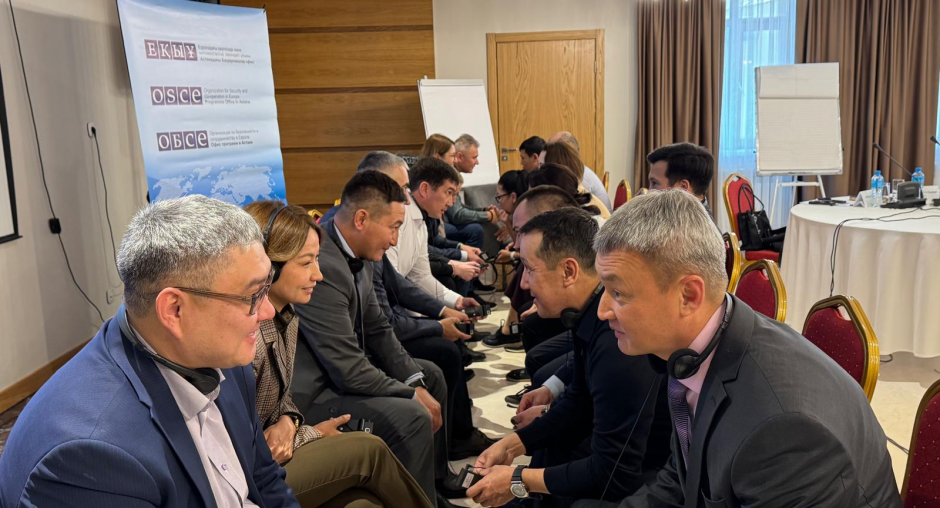OSCE-led Mobile Training Team trains Kazakhstan’s Customs and Border officers

Twenty-eight border and customs officers participated in a training course held from 7 to 11 October in Astana, Kazakhstan. The course was organized by the OSCE Transnational Threats Department in close co-operation with the OSCE Programme Office in Astana, and with the support of the Permanent Mission of Kazakhstan to the OSCE.
The week-long training focused on enhancing the capacity of frontline officers from Kazakhstan on how to react in crisis situations, strengthening their understanding of human behaviour and interviewing skills when screening passengers at border-crossing points while adhering to fundamental human rights.
At the opening session, Dr. Volker Frobarth, Head of the Programme Office in Astana stressed that: “It is essential to note that this work is particularly important in the context of regional security. In this regard, the OSCE, in general, and our Office, in particular, highlight the great importance of strengthening borders and enhancing their security by co-operating with the border security and management services of its participating States”.
“The skills you already possess, combined with those you will refine or develop during this week, such as crisis management, passenger screening, and advanced interview techniques, are crucial for enhancing Kazakhstan’s capacity to detect and respond effectively to these threats,” emphasized Monika Iwersen, Ambassador of Germany to Kazakhstan.
Through a blend of interactive real-life scenario-based exercises and theoretical insights, participants discussed how to effectively prepare and respond during various stages of a border crisis. They also practiced interviewing techniques and risk assessment methods to detect suspicious behavior during passenger screening, while identifying and preventing cross-border movement of potential perpetrators of serious and organized crime.
“Foreign terrorist fighters and high-risk individuals continue to pose a serious threat to international peace and security, and the OSCE’s training programme is tailored to support participating States’ ongoing efforts to prevent and address such threats,” highlighted Siv-Katrine Leirtroe, Head of the Transnational Threats Department’s Border Security and Management Unit.
This OSCE-led MTT deployment marks its fourth engagement in Central Asia, following successful training courses in Uzbekistan, Tajikistan (with the Border Management Staff College), and Kyrgyzstan conducted throughout 2024. The courses were delivered by MTT experts from Turkish National Police, Border Police of North Macedonia, a former FBI agent, a representative from INTERPOL, and a security-sector expert from Serbia, along with Ms. Aruna Turlubekova, Head of the Profiling Division of Kazakhstan’s Aviation Security Service, who provided an insightful overview of Kazakhstan's profiling efforts in the national context.
These courses are implemented as part of the extrabudgetary project “Training and Deployment of OSCE Mobile Training Team to Better Address Challenges in Identifying the Cross-Border Movement of Foreign Terrorist Fighters and Other Cross-Border Crimes in the OSCE Area–Phase II” funded by Germany and the United States.
